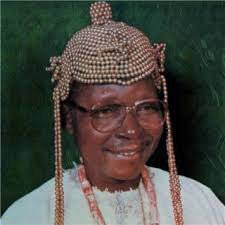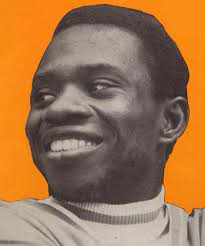Celebrating Phyno, Igbo Music Icons, and the Legacy of Igbo Music
Celebrating Phyno, Igbo Music Icons, and the Legacy of Igbo Music
The Nigerian music industry is a melting pot of cultures and languages, with Igbo music standing out as a rich and vibrant contributor. From the legendary pioneers of the 1960s and 1980s to today’s trailblazers like Phyno, Flavour, Chike, and Jeriq, Igbo artists have used their craft to celebrate their heritage, tell compelling stories, and elevate the Igbo language on global platforms.
In this blog, we’ll explore the influence of Phyno and his contemporaries, alongside the timeless legacy of Igbo music icons from decades past.
Phyno: The Igbo Rap King
Phyno, born Chibuzor Nelson Azubuike, has revolutionized the concept of indigenous rap in Nigeria. With his breakthrough album No Guts No Glory (2014), Phyno cemented his place as a pioneer of Igbo rap, combining poetic lyricism with hardcore beats. Phyno's ability to blend Igbo language and Pidgin English has made him a household name across Nigeria and beyond.
Key Achievements:
Award-Winning Hits: Tracks like "Ghost Mode," "Man of the Year (Obago)," and "Fada Fada" have won awards, including The Headies.
Collaborations: Phyno has worked with industry heavyweights like Olamide, Flavour, and Wizkid, bridging cultural and musical gaps.
Global Reach: Through his unique style, Phyno has brought Igbo rap into the global music conversation, making it clear that indigenous music is universal.
Phyno’s music isn’t just entertainment; it’s a cultural movement that inspires pride in Igbo identity and language.
Flavour: The Highlife Maestro
No discussion of Igbo music is complete without mentioning Flavour N'abania. Known for his modern take on highlife music, Flavour has created timeless hits like "Nwa Baby (Ashawo Remix)," "Ada Ada," and "Golibe." His music celebrates love, tradition, and the vibrancy of Igbo culture.
Notable Achievements:
YouTube Success: Over 1 billion views, making him one of Africa’s most-watched artists.
Cultural Ambassador: Flavour’s music showcases Igbo traditions, particularly in marriage ceremonies and folklore.
Awards: Multiple awards, including MTV Africa Music Awards, for his contributions to African music.
Flavour’s dedication to highlife ensures the genre remains relevant and continues to inspire both his contemporaries and the next generation of artists.
Igbo Music of the Past: Legendary Artists of the 1960s to 1980s
The foundation of Igbo music as we know it today was laid by pioneering artists from the 1960s to 1980s. These legends infused traditional Igbo rhythms with highlife and afrobeat to create iconic sounds that still resonate.
Chief Stephen Osita Osadebe
Osadebe, a titan of Igbo highlife, gained fame with timeless classics like "Osondi Owendi." His music was a blend of soothing melodies and profound lyrics that celebrated Igbo identity and culture. Osadebe’s work defined the golden era of Nigerian highlife.
Oliver De Coque
Known as the "Highlife King of Africa," Oliver De Coque’s guitar mastery and energetic performances made him a household name. Hits like "Biri Ka Mbiri" and "People’s Club of Nigeria" are still celebrated for their infectious rhythms and cultural themes.
Rex Lawson
Although primarily an Ikwerre artist, Lawson’s influence on Igbo music is undeniable. Songs like "Sawale" and "Jolly Papa" brought highlife to the forefront of Nigerian music in the 1960s and 1970s.
Sir Warrior and the Oriental Brothers International Band
A pioneer of Igbo highlife, Sir Warrior’s music captured the struggles, joys, and aspirations of the Igbo people. The Oriental Brothers band remains a symbol of unity and cultural pride.
Celestine Ukwu
Ukwu was renowned for his philosophical lyrics and mellow highlife melodies. Songs like "Igede" and "Money Palaver" reflected the socio-political realities of the Igbo people while entertaining listeners with soulful rhythms.
These artists not only entertained but also preserved Igbo language and culture during challenging times, especially after the Nigerian Civil War.
Modern Igbo Stars: Chike, Jeriq, and Others
The torch of Igbo music has been passed to a new generation of artists who blend modern sounds with traditional storytelling.
Chike: The R&B Sensation
Chike’s soulful music, exemplified by hits like "Roju" and "Running to You," merges Igbo and English to tell universal stories of love and longing. His breakout album, Boo of the Booless, is a testament to his artistry and versatility.
Jeriq: Voice of the Streets
Jeriq has become a symbol of hustle and ambition for Igbo youth. His albums, including Billion Dollar Dream, use raw, street-inspired Igbo rap to capture the realities of life in Eastern Nigeria.
Zoro
Zoro: Known for his hit "Ogene," Zoro fuses traditional Igbo sounds with modern beats, making highlife and rap accessible to younger audiences.
IIIbliss
Illbliss (Oga Boss): A veteran of the industry, Illbliss combines sharp political commentary with Igbo rap, earning respect as a thought leader.
Umu Obiligbo
This duo has revived traditional Igbo highlife, blending folklore with contemporary rhythms. Songs like "Culture" celebrate Igbo customs and traditions.
Gentleman Mike Ejeagha
is a legendary Igbo highlife musician and folklorist celebrated for his profound contributions to preserving Igbo culture through music. Starting his career in the 1950s, he skillfully blended proverbs, moral lessons, and traditional storytelling into his songs, performed entirely in the Igbo language. Ejeagha's achievements include:
1. Rich Discography: Produced numerous albums with iconic songs like Omekagu and Uwa Mgbede Ka Mma.
2. Cultural Preservation: Played a pivotal role in safeguarding Igbo folklore and heritage through music.
3. Recognition: Honored by the Enugu State government with a street named after him.
4. Milestone: Became the oldest Nigerian artist (at 94) to enter the Apple Music Nigeria Top 100 chart.
His legacy remains an inspiration for generations, enriching Igbo music and culture.
The Cultural Legacy of Igbo Music
From the legends of the past to today’s stars, Igbo music has always been more than entertainment—it’s a celebration of identity, culture, and resilience. Artists like Phyno, Flavour, and Chike have redefined the boundaries of what Igbo music can achieve, while legends like Osadebe, Michael Ejeagha and Oliver De Coque laid the foundation for their success.
As these artists continue to innovate and inspire, Igbo music remains a powerful testament to the richness of the language and culture, proving that it can hold its own on the global stage.
Let’s celebrate these icons—past and present—and support the future of Igbo music as it continues to evolve and inspire.









Comments
Post a Comment